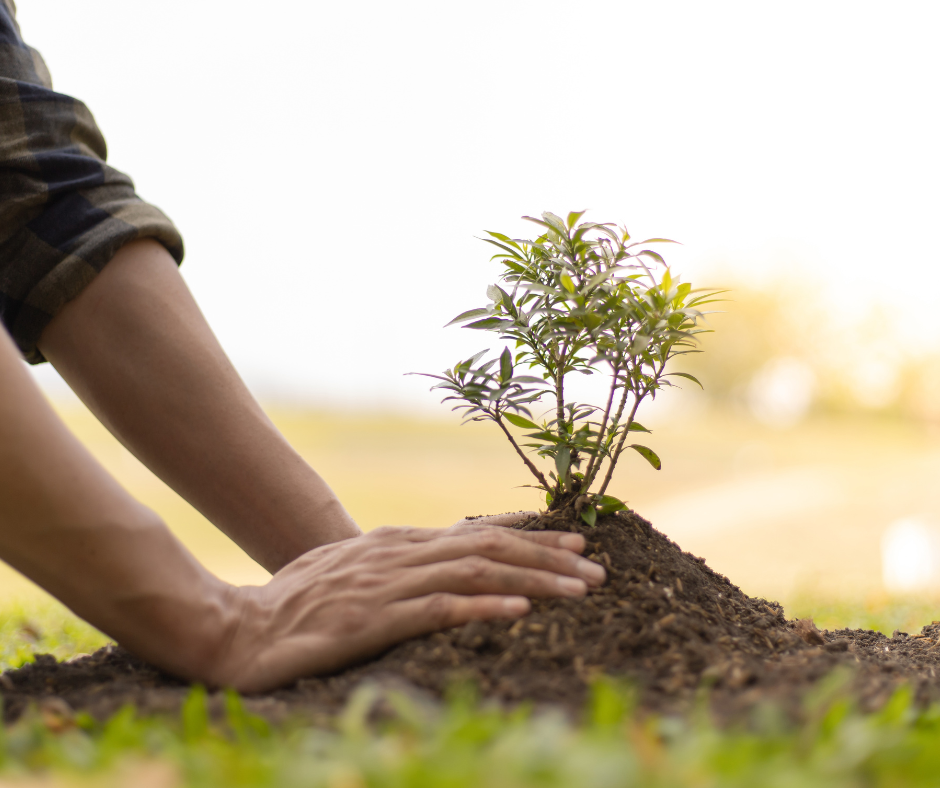The Sustainable Benefits of Forestry on Minnesota Hobby Farms
The Sustainable Benefits of Forestry on Minnesota Hobby Farms

Forestry is a critical activity that plays a significant role in Minnesota's economy and environmental conservation efforts. For hobby farmers in Minnesota, managing forested areas can be a sustainable and profitable activity that also promotes environmental conservation and supports local wildlife species. In this blog post, we'll explore the many benefits of sustainable forestry on Minnesota hobby farms.
Timber Production
One of the primary benefits of sustainable forestry on hobby farms is the production of timber. Timber is a valuable natural resource that is used in a wide variety of industries, including construction, furniture, and paper production. By managing their forested areas for timber production, hobby farmers can provide a valuable resource for these industries while also generating income for their farm.
In order to maximize the profitability of their timber production, hobby farmers must use sustainable forestry practices that promote the growth and health of their forested areas. This includes selecting the right tree species for their climate and soil conditions, as well as managing their forests for optimal growth and harvest. By following these practices, hobby farmers can ensure that their forested areas provide a sustainable and profitable source of income for years to come.
Wildlife Habitat
Forested areas can also provide valuable habitat for wildlife species in Minnesota. Many native wildlife species rely on forested areas for food, shelter, and breeding grounds. By managing their forested areas for wildlife habitat conservation, hobby farmers can help support the health and growth of local wildlife populations.
There are several strategies that hobby farmers can use to promote wildlife habitat conservation on their forested areas. This includes planting native trees and plants that provide food and shelter for wildlife species, as well as creating nesting and breeding areas for local bird populations. By implementing these strategies, hobby farmers can promote biodiversity and support the health of local ecosystems.
Environmental Conservation
Sustainable forestry also plays an important role in environmental conservation efforts. Forested areas provide a valuable natural resource that helps to support a wide range of ecological functions, including carbon sequestration and water filtration. By managing their forested areas using sustainable forestry practices, hobby farmers can help to maintain the health and vitality of these important ecological functions.
Sustainable forestry practices include strategies for promoting biodiversity, preventing erosion, and minimizing the use of chemicals. This includes planting a variety of tree species to promote biodiversity, using erosion control techniques to prevent soil erosion, and avoiding the use of harmful chemicals that can negatively impact local ecosystems.
Promoting a Sustainable and Profitable Hobby Farm
By managing their forested areas using sustainable forestry practices, hobby farmers can promote both environmental conservation and profitability. Sustainable forestry practices promote the health and growth of forested areas, ensuring that they can provide a sustainable source of income for years to come. Additionally, sustainable forestry practices help to maintain the health and vitality of local ecosystems, ensuring that these areas can continue to support a wide range of plant and animal species.
To promote a sustainable and profitable hobby farm, hobby farmers must be committed to using sustainable forestry practices and maintaining the health of their forested areas. By doing so, they can contribute to environmental conservation efforts while also generating income and supporting their local communities.
Sustainable forestry is an essential activity for hobby farmers in Minnesota, providing valuable resources and promoting environmental conservation efforts. By managing their forested areas using sustainable forestry practices, hobby farmers can promote the growth and health of their forested areas while also supporting local wildlife populations and contributing to Minnesota's economy.
If you're interested in sustainable forestry on your hobby farm, there are several resources available to help you get started. The Minnesota Department of Natural Resources offers a variety of programs and services to help hobby farmers manage their forested areas, including assistance with forest management plans, grants for sustainable forestry practices, and educational resources on sustainable forestry practices.
In addition to these resources, there are several steps that hobby farmers can take to promote sustainable forestry on their land. This includes planting a variety of tree species to promote biodiversity, implementing erosion control techniques to prevent soil erosion, and avoiding the use of harmful chemicals that can negatively impact local ecosystems. By taking these steps, hobby farmers can promote the health and vitality of their forested areas while also contributing to environmental conservation efforts.
Buyers:
If you're a buyer and have questions about the home buying process, be sure to download my Ultimate Buyers Guide.
Looking For A LOAN OFFICER? Check out Jane & Zach Johanns with New American Funding by CLICKING HERE. You can even apply for pre-qualification right on the site.
Want to crunch some numbers before you buy? Try out my Mortgage Calculator by clicking here!
Ready to start your home search? Click Here To Get Started!
Sellers:
If you’re a seller, now might be the right time for you to put your home on the market. Wondering What Your Home Is Worth? I would love to help. Let's connect and set up a time to talk about your goals and plans for selling!





